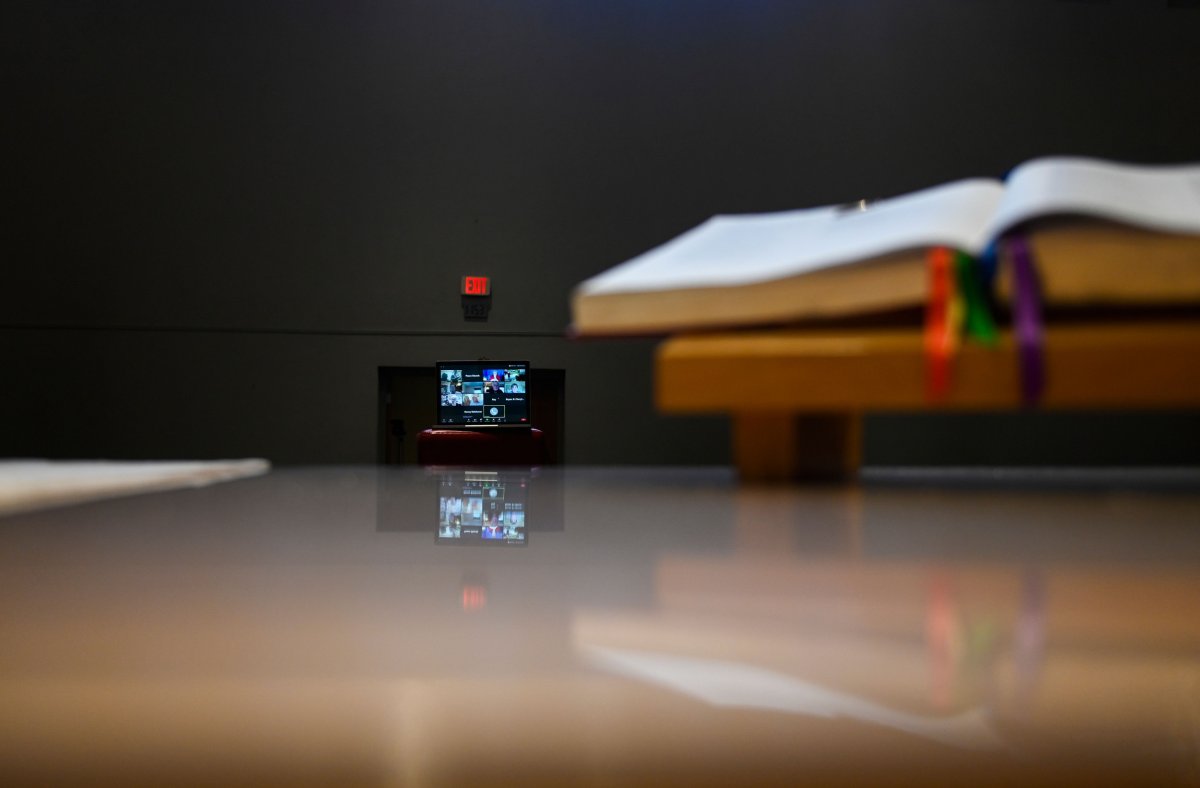The pandemic has forced many to reconsider their wedding plans, whether that be postponing, scaling back, or abandoning the event altogether. One long distance couple, however, decided to not let COVID-19 ruin their big day. So, they planned a wedding that would work with the pandemic—even if it meant the bride and groom were stuck on different continents.
Athar Ali and his now-wife, Hani Ali, have now joined the ranks of those whose wedding was forced to take an unusual format due to the pandemic. According to the Australian Broadcasting Company (ABC News), the couple met in February 2020, when Athar, a Brisbane resident, met Hani while traveling in Pakistan.
The two reportedly shared an instant connection and pursued their long-distance romance after Hani added Athar on Instagram.
They texted and video chatted to connect, despite being geographically separated—the two were located over 10,000 kilometers, or 6,200 miles, away from each other.
Eventually, the duo "decided to tell [their] parents that [they] like each other" as marriages in Pakistan are typically a family affair. "Marriage in Pakistan is not just between a boy and a girl, it's a bond that forms between the two families; the parents are the ones who make the main decisions," explained Athar.
Luckily, Athar's parents live in Pakistan and were able to meet Hani and her family. It was decided that they would marry in July 2021.
The pandemic, however, wasn't stopping—meaning that, with travel restrictions prohibiting Athar from traveling to Pakistan, their wedding would have to look very different from how they might've imagined.
"There was this uncertainty that made me quite depressed, because I really wanted to be with her," said Athar to ABC News. "I wanted to be in Pakistan ... and get married in a traditional Pakistani wedding." He added that a typical wedding in the country would last "for [a] whole week" and involve "three or four different receptions" and "more than 500 or 600 people."
For their wedding ceremony, they knew they had to take it online. Their Nikah—a religious ceremony to wed under Islamic law—was held in their respective homes, on a Zoom video call. Because he was not present in Pakistan to exchange his vows in person, Athar granted his father power of attorney. "I said the vows in front of the camera, and he said it again on my behalf [to Hani] in person," he said.
While certainly far from ideal, the unusual wedding ceremony perfectly encapsulates how the pandemic has altered parts of life that were once taken for granted.
The couple, however, doesn't plan on being separated for much longer. In addition to eventually hosting an event in Pakistan to celebrate their marriage, Hani is awaiting her visa to make the big move to Australia.
There, Athar is getting started on setting up for his wife's arrival. Said Hani: "He just bought land for us and made up a plan of our house."
In the age of COVID-19, events that involve large groups of people, dancing, hugging, and other close contact are no longer a possibility—meaning that innovative and nontraditional solutions have been a necessity for couples around the world.
As a result, weddings today often look wildly different from those just two years ago. Earlier this month, for example, it was reported that a New York-based woman moved her wedding to the US-Canada border line, thus allowing her 96-year-old grandmother to attend. In late August, another bride shared that her parents chose to skip her wedding rather than receive the required COVID-19 vaccine. And in the same month, a bride attended her own wedding solo after her groom contracted the virus.

Uncommon Knowledge
Newsweek is committed to challenging conventional wisdom and finding connections in the search for common ground.
Newsweek is committed to challenging conventional wisdom and finding connections in the search for common ground.
About the writer
To read how Newsweek uses AI as a newsroom tool, Click here.








